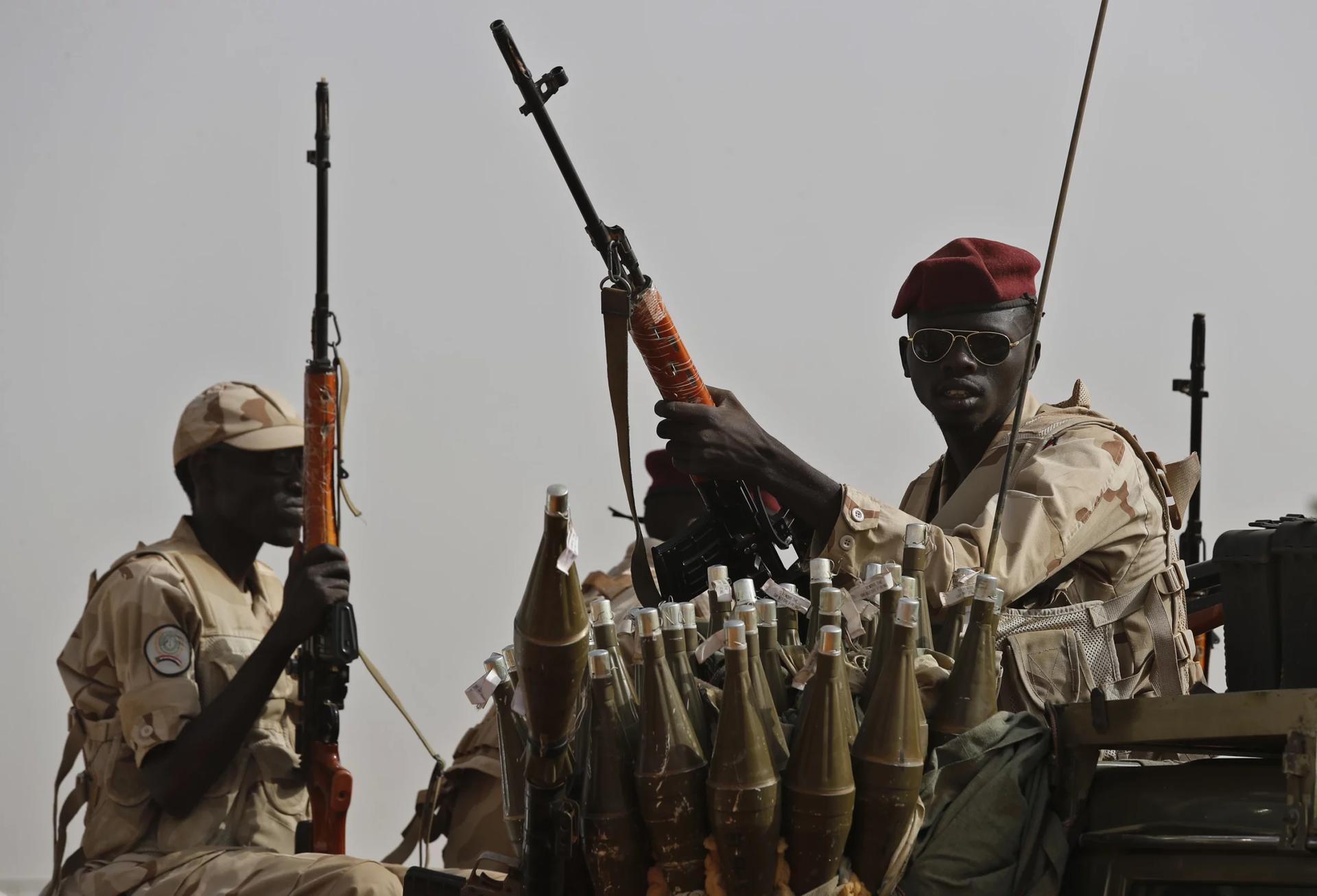LEICESTER, United Kingdom – A South Sudanese bishop says food has been weaponized during the civil war in Sudan, with famine now looming in his neighboring country as a direct result of the conflict.
Speaking to the Catholic Bishops’ Conference of England and Wales, Bishop Alex Lodiong Sakor Eyobo of Yei, South Sudan, was critical of tactics being used in the war between the Rapid Support Forces (RSF) and the Sudanese Armed Forces (SAF).
Fighting broke out between two rival armed factions in the capital in April 2023. According to the Center for Preventive Action, the civil war has so far triggered the deaths of almost 15,000 people. More than 8.2 million have been displaced, about 2 million of the displaced finding refuge in equally volatile environments like Chad, South Sudan and Ethiopia.
“They harass humanitarian agencies. And when humanitarian agencies are harassed, they stop delivering food because they also have to protect their own lives,” Sakor Eyobo said.
“The food aid sometimes is blocked by the RSF, not allowing them [the agencies] to enter. Because when you take food aid to the people, you are also going to feed their own enemies. So, they use food as a weapon, so that once food is not delivered, their enemy is weakened. That’s their point of view,” the bishop said.
“The famine is not because there is drought, it’s because of the conflict,” he said.
The Office of the UN High Commissioner for Refugees (UNHCR) says thousands leave Sudan every day, fleeing brutal violence and abuse, death, disrupted services, limited access to humanitarian aid in addition to looming famine.
“Horrific though that is, it is not just about famine, it’s about brutal human rights violations, it’s about floods that are expected to be the worst in many years this year, and that not only hampers the delivery of humanitarian aid, but it means that people are trapped where they are with little aid and not able to flee,” said Ewan Watson, Head of Global Communications at the UN agency.
Sakor Eyobo told the English Church the problem of the famine is that Sudan cannot produce because people are on the run.
“So, when someone is on the run, you have nothing to produce for yourself. If you run, you leave your belongings behind; you have no money, even to buy food because as a displaced person, where do you get your money?” the bishop said.
“Even if there is food available in the market, you have no means to buy it. So that’s why it is difficult and that’s why there is famine. People are moving, they are being chased from their places, they cannot produce food, and since they cannot produce food, that sets up the place for famine,” he added.
The bishop said the war aggravates the problem.
“And even the Holy Father when he was talking about Iraq, Afghanistan and Israel, said that ‘war is a defeat.’ If human beings want to engage in war, it is a defeat. It is not a success; you will never succeed in war,” Sakor Eyobo said.
“Life is being destroyed, property is being destroyed and before you realize, everything is gone. And to reconstruct is not going to be very easy. So, our appeal is that the humanitarian community becomes proactive, acts fast, so that these issues are handled,” he continued.
“We engage the local communities that are being fragmented as a result of war so that they are not used by the elites. Because the elites use our people for their own gain and our people are then the ones who suffer,” the bishop said.
Bishop Paul Swarbrick, Lead Bishop for Africa at the Catholic Bishops’ Conference of England and Wales, said it “is essential” to resolve the Sudanese conflict as quickly and effectively as possible.
“As other conflicts gain a lot of media attention, Sudan’s war is already spilling out to destabilize neighboring countries and South Sudan is increasingly affected,” he added.
“Earlier this year I had an encouraging response from British ministers in terms of practical aid and as well as political intervention. I also heard from Bishop Carlassare of Rumbek. The presence of the Church even during times of political instability and food insecurity is a reason to keep hope alive. Christ has not abandoned the people,” Swarbrick said.
Follow Charles Collins on X: @CharlesinRome















